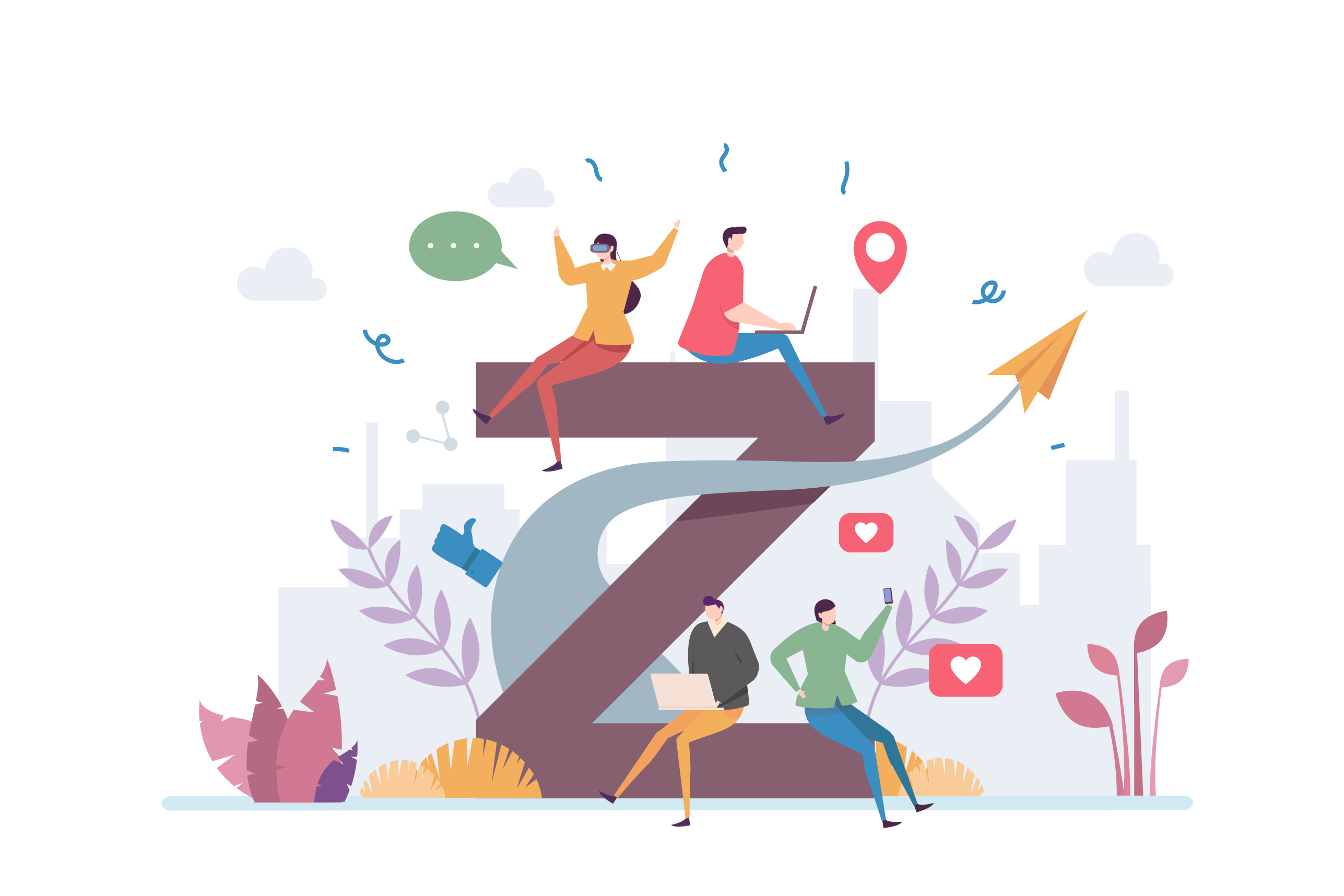WHERE TO START WHEN HIRING GEN Z EMPLOYEES?

Before 2020, job opportunities were plenty, unemployment rates were at a record low, and the economy was rock-solid. Then, something unprecedented happened, enveloping the entire world in a cloud of despair and uncertainty. Humanity was thrust headfirst into the throes of a pandemic. In the wake of the ramifications of a highly transmissible virus, offices across the globe shut down. In a desperate bid to counter utter collapse, the entire global economy was rendered remote. In 2021, as the businesses gear up to accelerate their operations and expand recruitment activities, Gen Z is set to dominate applicant pools. The old strategies for acquiring new talent won’t work anymore, and more needs to be done to even begin to understand Gen-Z.
Who are Gen-Z?
Gen-z refers to people born at the tail-end of the 20th century and have spent their growing years at the peak of the technological revolutions. It is impossible for them to imagine a world sans gadgets. With higher and free accessibility to the behemoth of information available on the internet, Gen-Z are well informed on global trends, opinionated and motivated to conquer the world with their unique capabilities.
Gen Z vs Millennials
Gen Z are a distinctive cohort. They are analogous to their predecessors, the millennials, in many ways but different enough to stand out. As far as personal values are concerned, millennials and Gen-Z exhibit an uncanny degree of similarity. Both generations take firm stands on issues like climate change, gender-based discrimination, and policy-making. However, when it comes to growing up with technology, Gen Z have a vastly different experience than Millennials. They’ve grown up in a world that has already experienced unprecedented levels of digitalization, with hyper-connectivity characterizing contemporary life. The implications of this single point of difference are manifold; one being Generation Z’s attitudes towards entering the future workforce.
Here are our projections for the same:
Digitalization
Gen Z’s have little to no concept of a gadget-free world. Even the oldest of this generation have been born amidst a sufficiently advanced technological landscape. Thanks to this affinity to being tech-savvy, members of Gen-Z are unlikely to face technology-centric adoption problems experienced by their predecessors. They are also better equipped to adapt to upcoming advancements in the business world. More precisely, the anticipated move to an automation-driven economy should not have a drastic effect on the employability of Gen Z. Given this fact, companies can rely on Gen Z employees to forward their legacies.
Money Comes Secondary
Gen Z’s may not be facing the Great Recession of 2008. But, thanks to COVID, the economic conditions facing them are also alarming. However, monetary gain is still not atop the priority-list of Gen-Z employees. Furthermore, members of Gen-Z exhibit greater self and social awareness than previous generations. They are not enticed by dictums equating work with worship and are happy to err on the side of work-life balance. In other words, meaningful employment matters just as much to Gen Z as being gainfully employed. For them, money is only part of the equation. The rest comes from alignment with personal values and compatibility with intrinsic motivation to exact positive change in the world.
Flexibility
Gen Z are a conscientious bunch that doesn’t approve of being treated like pencil-pushers. They inherently wish to perform work that they can take pride in and thus despite excessive micro-management. The most preferred work environments of Gen-Z employees have faith in their ability to get the job done and foster autonomy. Along the same lines, Gen Z have a distaste for workplaces that thrive on a workaholic culture. They believe in being task-oriented instead of clock-oriented, thereby preferring flexible working hours over premeditated schedules.
Diversity, Equity, and Inclusion
When it comes to the freedom to express their identity, Gen Z’s don’t allow for compromises. Gen-Z employees are open about all facets of their being. Thus, members of Gen-Z view workplaces that expect them to suppress their individuality as the least desirable on the job market. On the contrary, Gen Z’s love working for companies that encourage acceptance and mutual respect among employees. In fact, it wouldn’t be far-fetched to dub inclusivity as the personal value that’s dear to Gen Z. Thus, thus generation takes great offence at inappropriate innuendos or discriminatory remarks. So, questions like, “when do you plan on getting married?” or “Will you be rejoining the workforce once you have a baby”, may not be well received by this Generation. In fact, Gen Z’s desire for equitable treatment extends beyond the gender binary. Apart from supporting movements like Feminism, Gen-Z’s are also more likely to support social debates focused on equality on all grounds.
Work Exposure
Gen-Z employees like to approach work with a degree of confidence and competency. But, they derive no joy or satisfaction out of work than undermines their value. Gen Z’s don’t do well with monotonous responsibilities that add little to the organization’s overarching goals. However, this Generation have no problems performing micro-tasks. They merely deter from doing the same when their potential is under-recognized.
Conclusion
The workforce is at the cusp of a generational overhaul. Moreover, with COVID added to the mix, there’s no denying that hiring managers will be facilitating a challenging transition. However, being mindful of the nuances we’ve discussed above will go a long way in keeping companies from muddying the waters.